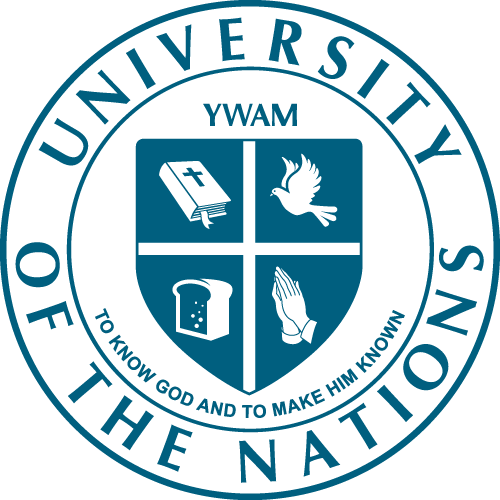The night before his death, Jesus shared with his disciples that he would soon be leaving them in order to prepare a place in the presence of the Father for them. He promised them that he and the Father would send Holy Spirit to be with them.
Jesus describes the person and ministry of the Holy Spirit as one who would help, counsel, reveal, guide, convict, and continuously make Jesus and the Father available to them. Jesus told them that the day they receive the Spirit they would know that he (Jesus) was with the Father and that they (the disciples) were there with him (John 14-16).
At his ascension, Jesus tells his disciples that he has regained humanity’s God given authority to rule on earth. He then commissions them to go and make disciples of all nations, baptizing them in the name of the Father, Son and Holy Spirit, teaching them to obey everything he commanded them. Then Jesus promises he would be with them always (through the Holy Spirit).
Before he left, Jesus instructed his disciples to wait for the gift of Holy Spirit who would do all he had said in John 14 – 16, all the prophets promised and more. He would empower them to live as he lived. In fact, Jesus said they would do even greater things. And so they waited.
On the day of Pentecost, 120 followers of Jesus (all Jewish) received this promised gift of Holy Spirit and the Church was born. At this point, the co-laboring with Jesus begins. The early chapters in the book of Acts tell key stories of Peter and John’s public ministry as they proclaimed the Gospel that Jesus Christ is Lord and performed signs and wonders. Many from among the Jews were saved. They continued their Jewish practices and added gathering in homes for teaching, prayer, fellowship and breaking bread together.
It took some time for the early Christians to understand that Jews and non-Jews (Gentiles) were equally loved by God and equally in need of a Savior – Jesus. Acts 10 tells the story of God convincing Peter to reach out to the Gentile, Cornelius. Acts 11 tells the story of some followers of Jesus who reach out to not only Jews, but also Gentiles in Antioch. Paul, a leading Jewish Pharisee and persecutor of the Church, encounters Jesus, becomes a Christian and responds to God’s call to be an apostle, sent out by the Church at Antioch to the Gentiles. Acts 15 tells the story of the decision the Church made to facilitate Jews and Gentiles coming together in Christ.
The rest of Acts and the letters written by Paul, John, Peter, James and others, gave encouragement and instruction aimed to grow the churches into maturity, bearing kingdom fruit in their communities in anticipation of a future HOPE. The early Church continued to look forward to Jesus return while continuing to proclaim the Gospel and bear kingdom fruit in every sphere of life.
And so today, God—Father, Son and Holy Spirit—is still sovereign and is moving human history toward his good desired goal (kingdom come/New Creation). God chooses to do this in ways that include our role to steward creation. Through our union with Jesus (the True Image Bearer) by the empowering of Holy Spirit, the Church (Renewed Image Bearers) is to proclaim the Gospel “that Jesus Christ is Lord” bearing the fruit of God’s kingdom in all of life as we await the return of Jesus.
Engaging your DTS in this part of the Story
We engage students in this part of the story with instruction/teaching that gives knowledge and application in how to walk by the Spirit, put off sin and put on life in Christ, including a number of spiritual practices.
Since the Spirit is foundational to how we grow as Christians, our aim in all program elements (practices) is to bring awareness to what the Spirit is doing, help students’ recognise his active presence and cooperate with him, and where appropriate respond in personal or group application.
We give students many ways to see how they contribute to God’s ongoing story through their relationships, with ministry opportunities on Outreach, and other places that we can make a space for them to grow in their talents and giftings or try new things. We help students clarify their sense of vocation and how they might contribute to God’s kingdom purposes in their family, work, church, etc. after DTS.
We teach students the Gospel (that Jesus is Lord), practice sharing this in class and give them opportunities to share the Gospel in a variety of creative ways during local outreach, free time and the Outreach Phase.
We develop and emphasise unity in the DTS and Outreach teams as both a way to witness to God’s character and to manifest his life in their midst.
We send the DTS to local outreach and to the nations on Outreach because God’s heart is for all people to know him and for his kingdom to be established on earth. We expose the DTS to major themes on God’s heart, such as the poor, orphans, refugees and peoples that have never heard the name of Jesus, responding in intercession and ministry opportunities when possible.
We provide opportunities for other outward practices such as giving, hospitality, service and celebration. We introduce the DTS to YWAM’s local and global opportunities for them to explore after DTS.
Key Concepts
The Holy Spirit is a personal being, who along with the Father and Son is God. Holy Spirit relates to people in personal relational ways. He adopts people into Trinitarian fellowship uniting us to the ascended Jesus at the right hand of the Father.
The Holy Spirit speaks personally and clearly to people through a variety of ways (e.g. an inner voice, a picture, other people). These personal words or instructions must always be consistent with the Bible and may be confirmed through others.
The Holy Spirit works to comfort, heal (physical and emotional), convict, teach and restore those who welcome his ministry.
The disciple is responsible to cooperate with Holy Spirit to believe and obey the truth. In addition, the disciple is to repent of false beliefs, sinful attitudes (e.g. pride, unbelief), destructive habits (e.g. gossip, coveting), other areas of disobedience and to make restitution when appropriate.
Every disciple is part of “The Body of Christ.” Each person is significant and yet needs other members of the body.
Disciples are expected to commit themselves to a church body to gather together regularly to worship, hear the Word, and fellowship.
God gives the Body of Christ a variety of spiritual gifts (e.g. prophecy, teaching, encouragement). Disciples are to partner with Holy Spirit through spiritual gifts to build others up “in Christ.”
Disciples are to reflect Christ in all their relationships. Godly, healthy relationships are mutually submissive, pure, honoring, loving, respectful, humble, interdependent, etc.
God desires for people to live a holy life, that is to relate to God and others as Jesus did.
A key to living a Christ‐like life (bearing the fruit of the Spirit) is to consistently draw upon the indwelling Holy Spirit.
There are still nations/peoples with little to no Gospel witness. Every disciple has the privilege and responsibility to respond in some way (common calling) to this need (pray, go, give, support).
Every disciple has the privilege and responsibility to demonstrate God’s mercy and compassion to those in need (common calling).
Each person has been created by God with certain abilities, capacities, gifts, and personality. Understanding one’s God-given design can help a person discern his specific calling.
People are to co-labor with God. As they intimately relate with God and others, they come to understand God’s call and how he is leading them to fulfill it.
One way God’s kingdom advances throughout the world is when people discern God’s intentions and resist the enemy’s strategies through intercession.
People, empowered by the work of the Holy Spirit, can also defeat the works of the enemy by responding in the opposite spirit (respond with humility to pride, generosity to greed etc.).
All people are called by God to glorify him in every aspect of their lives (common calling).
Every person has the privilege and responsibility to be ready to introduce others to Jesus in an effective and relevant manner (a basic knowledge of cross-cultural communication principles is included in the DTS to equip the staff/students to talk to people of other cultures).
The Holy Spirit equips and empowers people to fulfill their call (common and specific).
The prayer and counsel of others play a vital role in the formation and strengthening of our ability to know and walk in one’s calling.
God loves, respects, and has a purpose for peoples/nations (not just for the individuals of a people group/nation).
God calls ALL people to live and work in ways that bear kingdom fruit in all spheres of society. He calls some into nations, cultures, or situations that are ‘foreign’ to them and calls others to serve in their familiar setting.
The Story Line
- God: Father, Son and Holy Spirit
- Creation: Image Bearers
- The Fall: Broken Image Bearers
- Children of Abraham: Covenant Image Bearers Failed
- Jesus Christ: The True Image Bearer
- Holy Spirit and the Church: Renewed Image Bearers
- Jesus’ Return, Kingdom Come, Renewal of Creation: Reign of Restored Image Bearers Bearers, with Jesus, in creation under God
Key Themes
The Person and Work of Holy Spirit
Body of Christ: Unity and Diversity
Living by the Spirit / Holiness and Empowerment
The Great Commission: The Gospel, Missions and Evangelism and the Christian Magna Carta
Focus on an aspect of the world in need of God’s Kingdom to come e.g. people group, city, issue (e.g. poverty)
Living in God’s Kingdom: Exploring Common and Specific Callings (vocation) and the Spheres of Society
Suggestions for Reflection
Jesus promised the gift of Holy Spirit to all who followed him. Spend time in John 14 – 16 and discover what Jesus said about the Holy Spirit. For the next few days, participate in a practice that reminds you he is present to you every moment.
A community that functions according to the one another passages is rich soil for discipleship. Spend some time reflecting on these passages in light of your DTS community. Consider ways you are relating with others. Identify one step you will take to make a more positive contribution. Take it!
Consider someone from a different culture or with a different personality in your DTS community. Identify any tension you experience that comes from your differences. Ask God what in your attitudes or behaviors need adjustment to make room for him/her. Explore how you might do that.
Considering God’s heart for Unreached People Groups, identify one group and the ministries, tools and strategies that are engaging with them. Spend time praying for both the People Group and the ministries.
Consider a people group, nation, or city somewhere in the world. In groups, research things such as location, population, beliefs/religion, worldview, needs (Christian Magna Carta), and economic status. Use tools such as 4K maps, etc. Present your findings to the class and spend time in intercession for the group, nation, or city.
Sharing the Gospel is introducing people to the person of Jesus, who has lived, died, resurrected and ascended, making a place for them at the right hand of the Father. Write a message to a friend who doesn’t know Jesus, describe Jesus in such a way that compels him or her to want to follow him. Send it!
Identify a Sphere. Using a tool like the Sphere View Bible or the Old Testament Template. Explore the biblical principles that shape this sphere.




